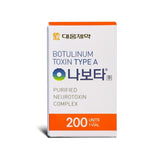Understanding the Importance of Vitamins for Healthy Skin

Understanding the Importance of Vitamins for Healthy Skin. In the eternal quest for youthful, vibrant skin, the role of vitamins is often heralded as a cornerstone for dermatological health. Vitamins are not merely essential for internal well-being; they are also crucial for the vitality of our largest organ the skin. This blog post delves into the world of vitamins and their pivotal role in fostering healthy skin, unraveling the science behind their benefits and how to incorporate them into your skincare routine.
Understanding the Importance of Vitamins for Healthy Skin: A Reflection of Nutritional Wealth
Our skin is often the first to betray signs of nutritional deficiencies or imbalances. As a barrier and a beauty feature, it requires a spectrum of vitamins to repair damage, slow the aging process, and maintain its protective functions.
The Vitamin Pantheon for Skin Health
Vitamin A (Retinoids):
Renowned for its anti-aging properties, Vitamin A stimulates collagen production, speeds up cell turnover, and helps to diminish fine lines. Found in retinol creams and serums, it is a powerhouse for skin renewal.
Vitamin B3 (Niacinamide):
A stalwart for the skincare regime, niacinamide works to reduce inflammation, ease redness from eczema and acne, and improve the skin's barrier function.
Vitamin C (Ascorbic Acid):
An antioxidant par excellence, Vitamin C fights free radicals, boosts collagen synthesis, and brightens the skin tone. Serums and moisturizers rich in Vitamin C can help fend off the signs of premature aging.
Vitamin D:
Often acquired through sun exposure, Vitamin D plays a role in skin cell growth and repair. However, due to risks associated with UV rays, dietary sources or supplements are recommended for skin health.
Vitamin E (Tocopherol):
Another antioxidant, Vitamin E helps combat the effects of free radicals produced by the metabolism of food and toxins in the environment. It's also known for its moisturizing properties.
Vitamin K:
This vitamin is key for healing wounds and bruises, reducing swelling, and diminishing the appearance of dark circles under the eyes.
Absorption: Topical vs. Ingestion
While a balanced diet rich in these vitamins is crucial, topical application can provide more direct benefits to the skin. Creams, serums, and oils containing these vitamins can target specific skin issues effectively.
Understanding the Importance of Vitamins for Healthy Skin: Signs of Deficiency
Lack of these essential vitamins can manifest in various skin issues:
- Dullness and Uneven Skin Tone: Often a sign of Vitamin C deficiency.
- Dryness and Flaking: Can indicate a lack of Vitamin A or Vitamin E.
- Excessive Bruising: A deficiency in Vitamin K may be the culprit.
Understanding the Importance of Vitamins for Healthy Skin: The Anti-Aging Effect
Vitamins A and C are particularly lauded for their anti-aging effects. Regular use can significantly reduce the appearance of wrinkles and fine lines, giving the skin a more youthful appearance.
Combating External Stressors
Pollution, UV rays, and other environmental stressors can cause oxidative stress, leading to premature aging and skin damage. Antioxidant vitamins like C and E provide a shield against these harmful elements.
The Brightening Boost
Hyperpigmentation, age spots, and uneven skin tone are common skin concerns that can be addressed with Vitamin C, which inhibits melanin production to even out skin tone.
Understanding the Importance of Vitamins for Healthy Skin: Nourishing from Within
Hydration is essential for plump, resilient skin. Vitamins A and E are known for their nourishing properties, helping the skin retain moisture and stay hydrated.
Personalized Skincare: Tailoring Your Vitamin Regimen
Not all skin types react the same way to certain vitamins. It's essential to tailor your skincare regimen to your skin's specific needs, which may require consulting with a dermatologist.
Synergy in Skincare: Vitamins and Other Nutrients
For optimal skin health, vitamins should be used in conjunction with other skin-friendly nutrients, such as omega fatty acids and minerals like zinc and selenium.
Potential Overuse and Interactions
While vitamins are beneficial, overuse, particularly of Vitamin A (retinoids), can lead to skin irritation and sensitivity. Be mindful of the concentrations and interactions between different vitamins and skincare ingredients.
Understanding the Importance of Vitamins for Healthy Skin: Keeping a Healthy Balance
Skincare is only one aspect of vitamin-related skin health. A holistic approach that includes a balanced diet and healthy lifestyle habits can amplify the effects of your skincare routine.
Monitoring Your Skin's Response
Pay attention to how your skin responds to different vitamins and adjust your routine accordingly. Sometimes, less is more, and a gradual introduction of these nutrients can prevent potential adverse reactions.
The Ethical Aspect of Vitamin Sourcing
With the rise of ethical consumerism, consider the sourcing of the vitamins in your skincare products. Sustainable and ethical sourcing of ingredients is not only better for the planet but can also ensure the quality of your skincare products.
The incorporation of vitamins into your skincare routine is a science-backed strategy for maintaining a healthy, radiant complexion. Understanding the importance of vitamins for healthy skin is paramount to choosing the right products and developing an effective skincare regimen. By nourishing your skin with these essential nutrients, you can enjoy the dual benefits of enhanced beauty and fortified skin health for years to come.





